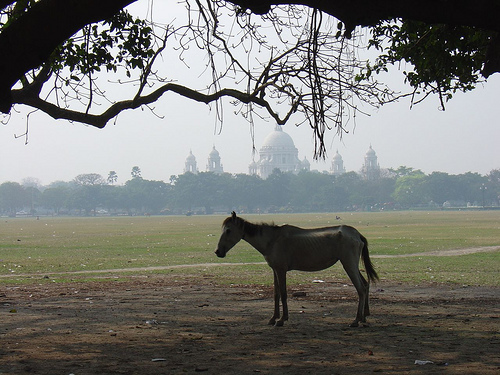 In an altogether different kind of offensive, an intense counter poaching operations training is being undertaken by around 50 park rangers of Asia including India in an effort to save and provide security to Asia’s forest reserves. Named ARREST (Asia’s Regional Response to Endangered Species Trafficking), the program is aimed at equipping forest rangers with improved patrolling techniques and law enforcement. The two week long training course, is being funded by the US Government.
In an altogether different kind of offensive, an intense counter poaching operations training is being undertaken by around 50 park rangers of Asia including India in an effort to save and provide security to Asia’s forest reserves. Named ARREST (Asia’s Regional Response to Endangered Species Trafficking), the program is aimed at equipping forest rangers with improved patrolling techniques and law enforcement. The two week long training course, is being funded by the US Government.
What does the training offer?
Designated PROTECT (Protected Area Operational and Tactical Enforcement Conservation Training), the course is designed primarily at saving Asia’s remaining reserve forests, with enhanced techniques. It is expected to provide best practical training to rangers in patrolling, reconnaissance, navigation, first aid, raids, takedowns, crime scene processing, search and arrests as also certain other skills that the rangers may require. It is hoped this effort will dramatically improve the security and protection of Asia’s reserve forests and wild life.
The trainees numbering around 50 across Asia include park rangers from India, Bhutan, Laos and Thailand. Guidance will be provided by experienced instructors at Khao Yai National Park’s Regional Nature Protection Training Center in Nakhon Ratchasima Province. For the first time a female officer from Indonesia’s SPORC (Satuan Polisi Hutan Reaksi Cepat – Rapid Reaction Forest Police) Brigade, will also take part in the ARREST.
Need for the training course
It is a well known fact that organized criminals are behind poaching and illegal trafficking of wild life and forests. Illegal logging is also on the increase and often the poachers’ targets are large National parks and sanctuaries, even protected areas where protection is inadequate.
These illegal activities fetch them billions of dollars in profit, making it even more difficult to curb the trend. From animals like deer, bear, tiger and elephant ivory to plants and trees like teak, aloe-wood and other valuable plants , the forest wealth is plundered by poacher gangs and trafficking syndicate. Even local villagers are forced in to the act.
To protect wild life habitat, both animal and plant, and maintain a healthy balance in the ecosystem on which the local communities depend for agriculture, it is imperative that park patrolling is enforced effectively.
Inaugurating the training course, Dr. Theerapat Prayurasddhi, Deputy Director-General of Thailand’s Department of National Park, Wildlife and Plant Conservation, said,
“This course will enhance cooperation between countries. We have seen animals being trafficked back and forth across Thai-Lao border and other borders. It’s time for us to stop illegal wildlife trade at the source; this course represents an important step.”
The PROTECT course utilizes ASEAN Center for Biodiversity (ACB) competency standards for protected area law enforcement jobs and is designed and delivered by FREELAND Foundation. This course will be adapted and delivered across Asia during the next five years in order to strengthen forest protection with support from ACB, the ASEAN Wildlife Enforcement Network (ASEAN-WEN) and other ARREST partners.
Course instructor Mark Bowman, also FREELAND Director of Field Operations encouraged participants, stating, “The more effort you put into this course, the more skill and knowledge you’ll take away to pass on to your fellow officers to protect your country’s natural resources and future.”
This is just a beginning. The “better preparedness” of park rangers to counter poachers may usher in new hopes for the survival and protection of wildlife. And the more Indian forest rangers learn here, the better they will be prepared to tackle the poachers looting Indian forest.
Related Stories:
Endangered Indian Animals Flooding Pet market in Thailand
Why India is Losing its Sloth Bears
Article reference: Phuket News






Nice post